Meet Marwell’s servals, Hex and Mr Jinx Moustache
March 17, 2025
March 17, 2025
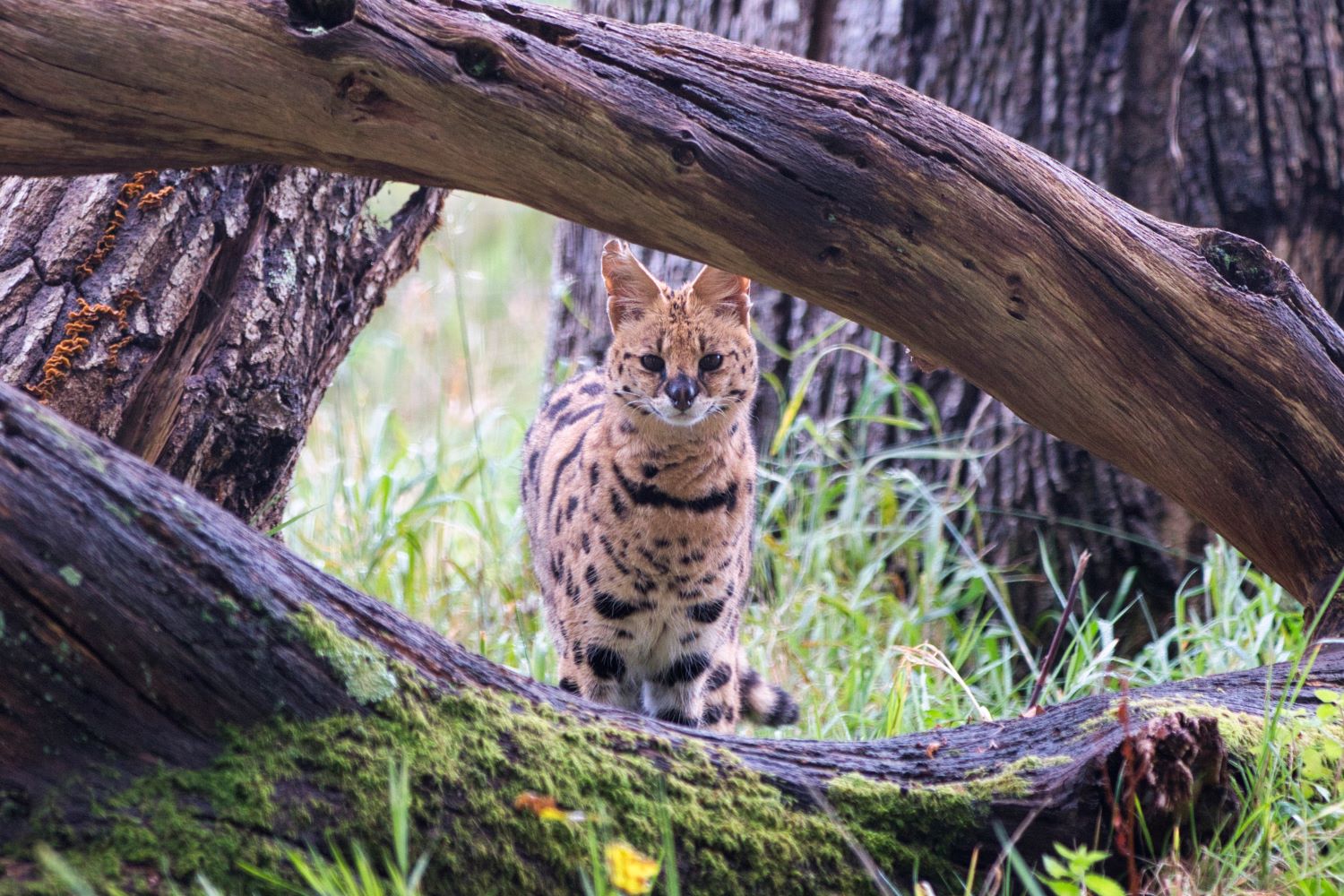
This World Serval Day, we’re celebrating Marwell Zoo’s two servals (leptailurus serval), a female name Hex and a male called Mr Jinx Moustache. Jinx, who could arguably win the competition for the coolest name ever, is five years old and the larger of the two weighing 12kg. Hex who is six years old, is slightly smaller, weighing 9kg but what she lacks in size, she makes up for in agility!
Servals are incredible jumpers, capable of leaping up to three metres high, and a single pounce can span three to six metres! They also have the longest legs relative to their body size of any cat species. In the wild, they use their long limbs and mobile toes to probe burrows, using their strong hooked claws to pull out hidden pray.
From elevated platforms for climbing to hidden spaces for stalking and pouncing, Marwell’s serval habitat has been specially designed so Hex and Jinx can thrive and express their natural behaviours.
In their habitat at Marwell, our servals have their own pond, which attracts insects for them to chase, and tall grass, which provides natural cover. If you’re visiting, look in the grass as our servals love nothing more than soaking up the sun on a warm day!
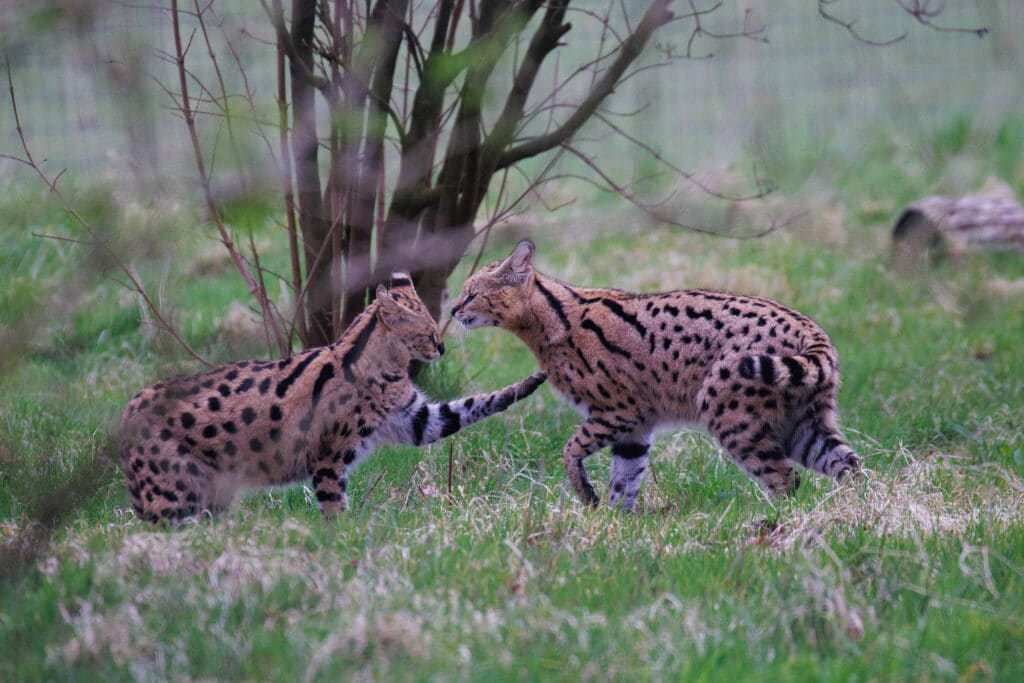
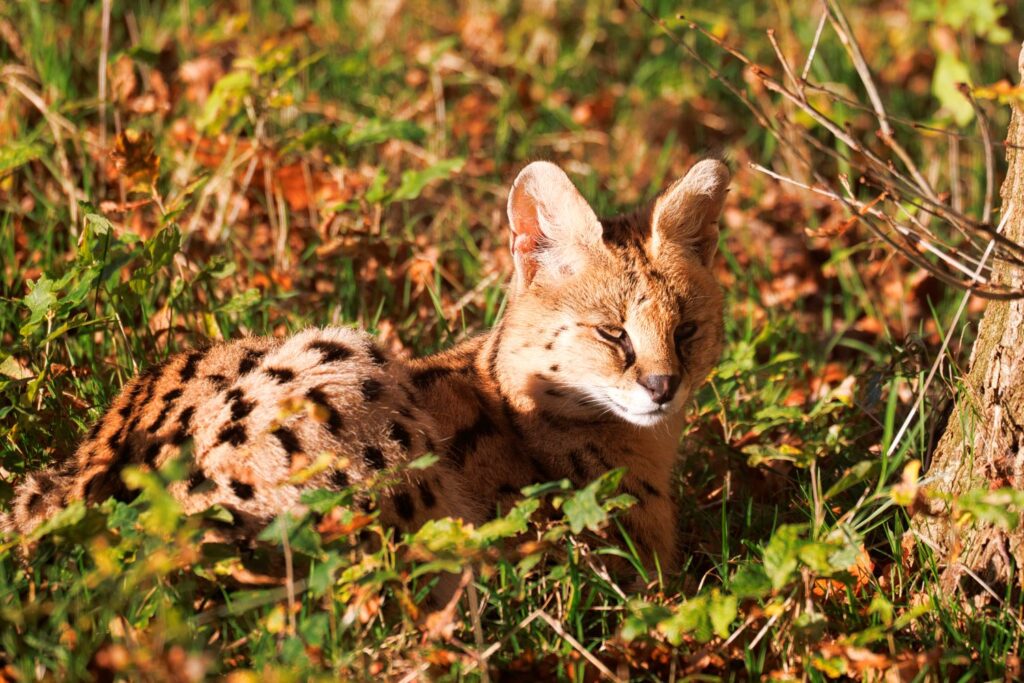
Our Carnivore Team is currently working with Hex and Jinx on voluntary training to support their care. They are learning to enter their crates willingly and accept injections without stress which strengthens trust with their keepers. This welfare-focused training ensures the servals remain happy, healthy, and comfortable while receiving the best possible care.
In the wild, servals are found in Africa, mostly in countries that are south of the Sahara Desert. The main threats these small cats face is hunting, habitat loss and environmental degradation.
One of the most common questions our Carnivore Team gets from guests is “Do servals or hybrid cats make good pets?” The answer is always no.
Breeding exotic wild cats with domestic cats to create hybrids, such as savannah cats, bengals, caracats, chausie cats, lead to welfare concerns. These animals often struggle in the environments they are in as they retain their wild instincts and high energy levels, making them unsuitable as pets.
Here at Marwell, we have keepers, vets, animal behaviourists, nutritionists, and habitat specialists who work together to provide the expert care that wild cats need. These animals cannot have their needs fully met in a typical household.
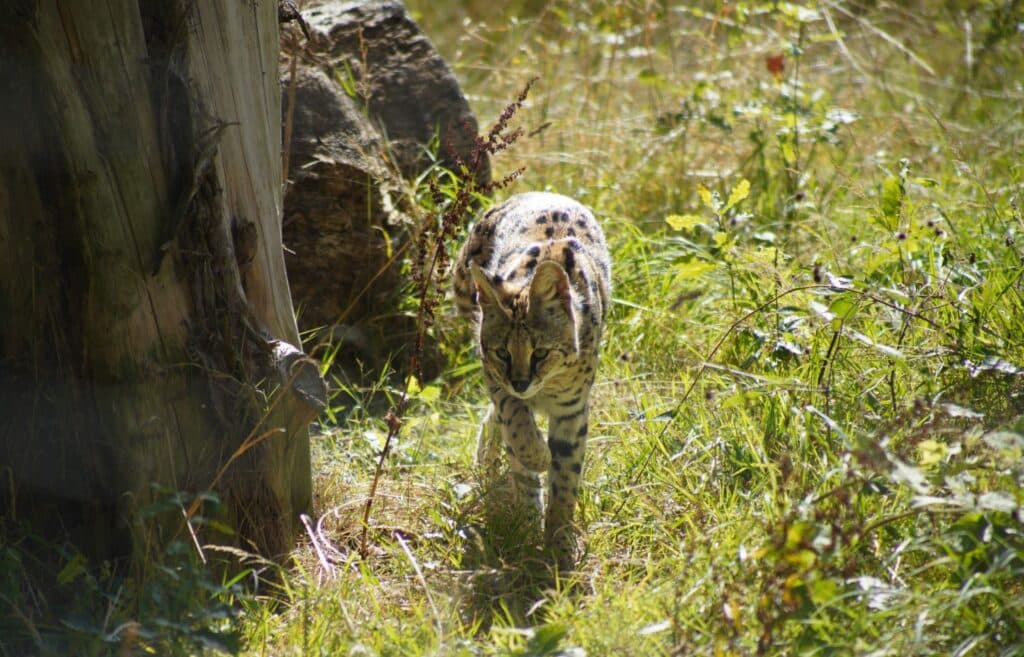
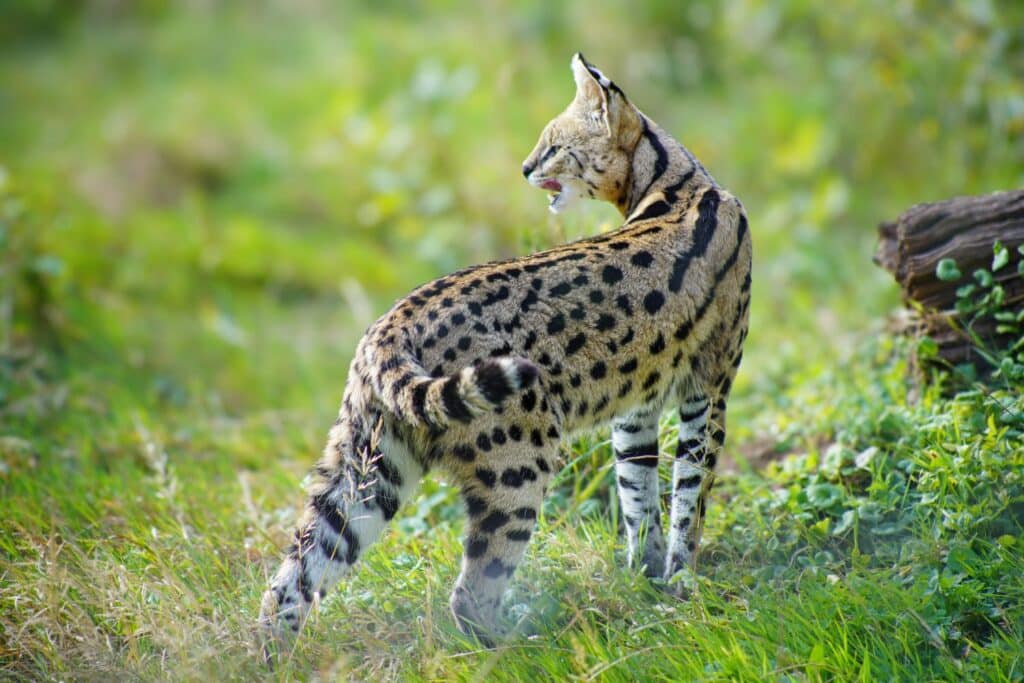
For an unforgettable day out, why not book a Small Carnivore Experience at Marwell? You’ll get a unique opportunity to go behind the scenes and learn first-hand from our Carnivore Team all about the small carnivores we care for here at Marwell.
As a registered charity, Marwell Wildlife relies on your support. By visiting the zoo, you’re directly contributing to our conservation efforts both here in the UK and across the globe.